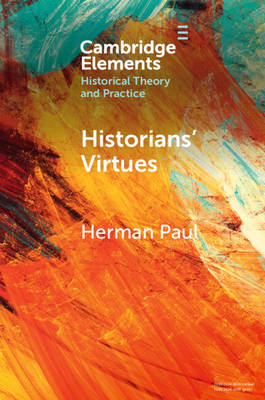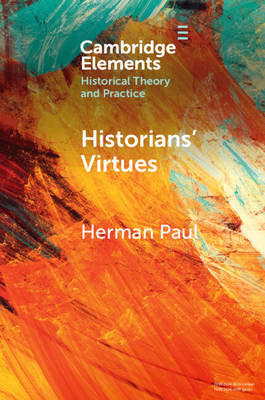
- Afhalen na 1 uur in een winkel met voorraad
- Gratis thuislevering in België vanaf € 30
- Ruim aanbod met 7 miljoen producten
- Afhalen na 1 uur in een winkel met voorraad
- Gratis thuislevering in België vanaf € 30
- Ruim aanbod met 7 miljoen producten
Zoeken
Omschrijving
Why do historians so often talk about objectivity, empathy, and fair-mindedness? What roles do such personal qualities play in historical studies? And why does it make sense to call them virtues rather than skills or habits? Historians' Virtues is the first publication to explore these questions in some depth. With case studies from across the centuries, the Element identifies major discontinuities in how and why historians talked about the marks of a good scholar. At the same time, it draws attention to long-term legacies that last until today. Virtues were, and are, invoked in debates over the historian's task. They reveal how historians position themselves vis-à-vis political regimes, religious traditions, or neoliberal university systems. More importantly, they show that historical study not only requires knowledge and technical skills, but also makes demands on the character of its practitioners. This title is also available as Open Access on Cambridge Core.
Specificaties
Betrokkenen
- Auteur(s):
- Uitgeverij:
Inhoud
- Aantal bladzijden:
- 75
- Taal:
- Engels
- Reeks:
Eigenschappen
- Productcode (EAN):
- 9781108994972
- Verschijningsdatum:
- 22/09/2022
- Uitvoering:
- Paperback
- Formaat:
- Trade paperback (VS)
- Afmetingen:
- 152 mm x 229 mm
- Gewicht:
- 113 g

Alleen bij Standaard Boekhandel
+ 63 punten op je klantenkaart van Standaard Boekhandel
Beoordelingen
We publiceren alleen reviews die voldoen aan de voorwaarden voor reviews. Bekijk onze voorwaarden voor reviews.











